Have you ever experienced a sudden spike in your water bill without any visible leaks in your home? That could be a sign of an underlying plumbing issue that needs attention.
Plumbing inspections play a crucial role in ensuring the proper functioning of your home's water and drainage systems. From detecting hidden leaks to preventing costly water damage, these assessments are vital for maintaining a safe and efficient household.
But how exactly do plumbing inspections work, and what are the benefits of staying proactive when it comes to your home's plumbing? Let's explore further.
Key Takeaways
- Regular plumbing inspections maintain system functionality and prevent costly repairs.
- Early detection of issues like leaks and clogs prevents extensive damage.
- Timely assessments preserve home value and attract potential buyers.
- Preventative maintenance saves costs by addressing problems before they escalate.
Importance of Plumbing Inspections
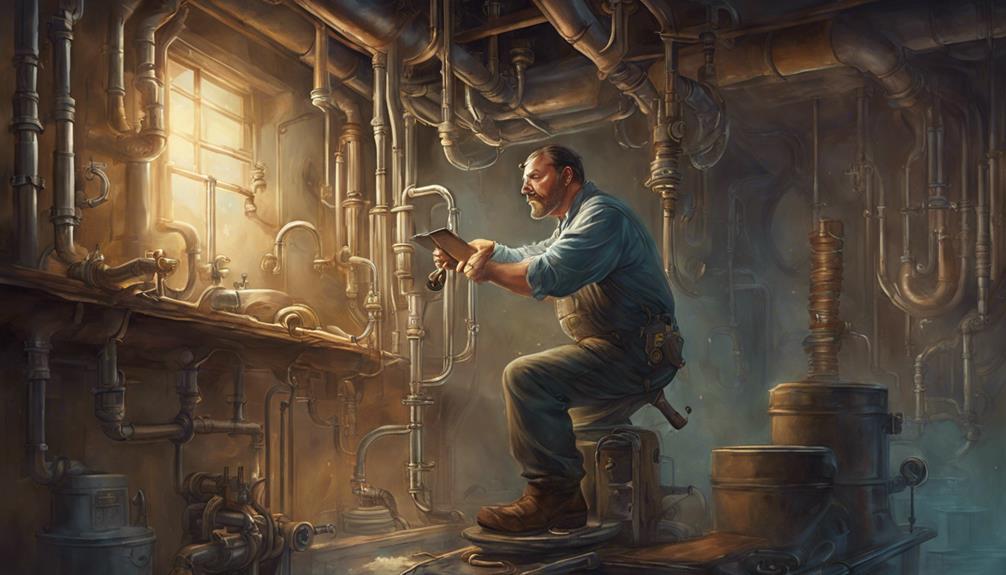
Regular plumbing inspections are crucial for maintaining the functionality and safety of your home's water and sewage systems. Preventive measures play a significant role in ensuring that your plumbing works efficiently and avoids costly repairs. To achieve this, incorporating maintenance tips such as checking for leaks, monitoring water pressure, and inspecting visible pipes for signs of corrosion is essential.
Professional expertise can also be instrumental in conducting thorough inspections. Hiring a qualified plumber to assess your plumbing system can provide a more in-depth analysis and identify potential issues that may go unnoticed through a do-it-yourself (DIY) approach. However, there are simple DIY solutions that homeowners can undertake to supplement these professional inspections. Tasks like cleaning out drain traps, testing toilet flush mechanisms, and insulating exposed pipes can contribute to the overall health of your plumbing system.
Benefits of Regular Assessments
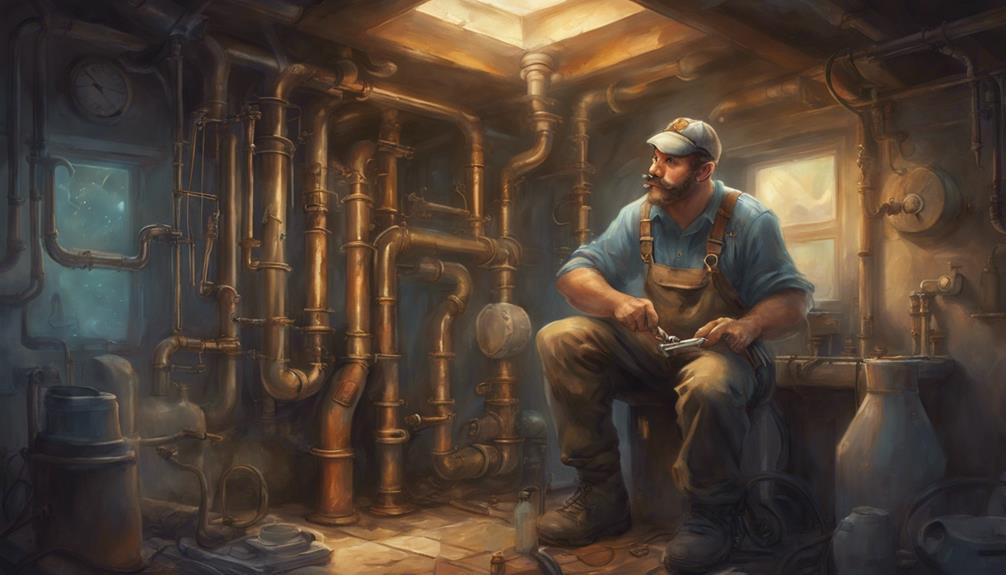
To ensure the continued functionality and safety of your home's plumbing system, conducting regular assessments is essential for identifying potential issues early on. Maintenance tips recommend scheduling annual plumbing inspections to catch problems before they escalate.
Professional services offer thorough assessments by licensed plumbers who can detect issues that may go unnoticed. However, there are also DIY options available for homeowners to perform basic checks between professional inspections.
Inspection frequency is crucial, as minor leaks or corrosion can lead to significant damage if left unattended. DIY assessments can include checking for leaks, inspecting visible pipes for signs of corrosion, and testing water pressure to ensure proper flow.
Common Issues Detected Early
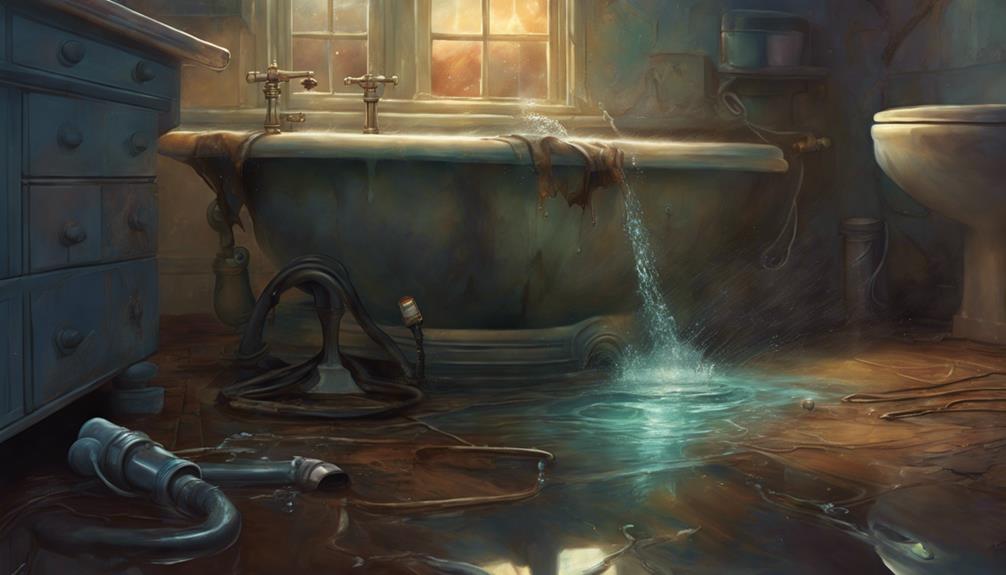
Early detection of common plumbing issues is crucial for maintaining the integrity and functionality of your home's system. By identifying problems early on, you can prevent costly damages and ensure that your plumbing works efficiently. Here are some common issues that can be detected early through regular plumbing inspections:
- Leaky Pipes: Detecting leaks early can prevent water damage to your walls, floors, and ceilings. Look for signs such as water stains, mold growth, or the sound of running water when no fixtures are in use.
- Clogged Drains: Early detection of slow drainage can help prevent complete blockages. If you notice water pooling in sinks or showers, or if you hear gurgling noises when using plumbing fixtures, it may indicate a clog.
- Water Pressure Problems: Monitoring water pressure can help identify issues with your plumbing system. Low water pressure could be a sign of a hidden leak, while high pressure can strain pipes and fixtures. Adjust pressure regulators as needed to maintain optimal levels.
Regular maintenance and inspections can help you catch these issues early, allowing for prompt repairs and ensuring the longevity of your plumbing system.
Impact on Home Value
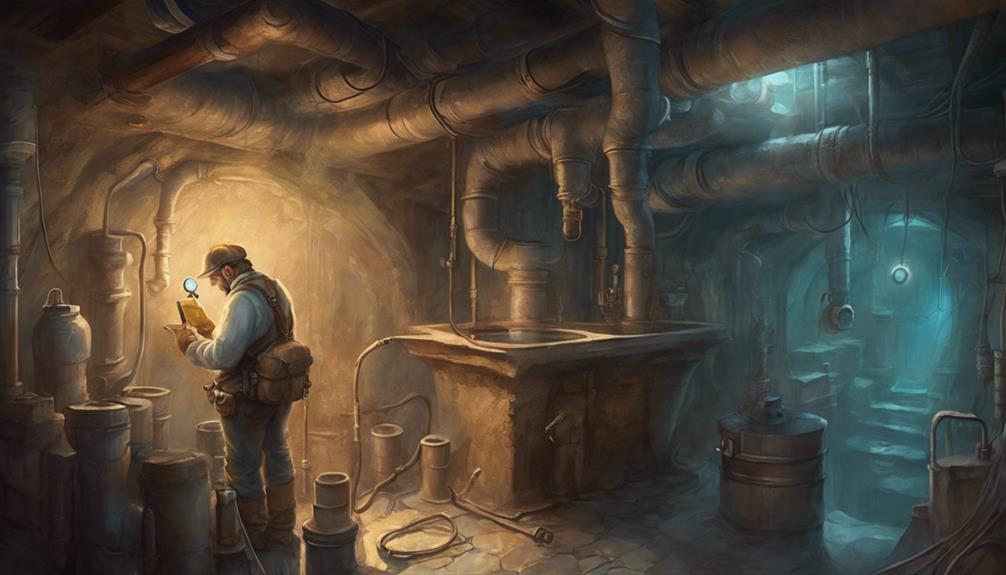
Detecting and addressing plumbing issues promptly can significantly impact the overall value of your home by ensuring the integrity and functionality of the plumbing system remain top-notch. Proper home improvement and property maintenance through regular plumbing inspections can prevent small issues from escalating into major problems that could decrease the value of your property. By investing in routine plumbing inspections, you are not only maintaining the value of your home but also potentially increasing it by showcasing a well-cared-for property to potential buyers in the future. Here is a table highlighting how plumbing inspections can influence the value of your home:
| Impact on Home Value | Explanation |
|---|---|
| Prevents Major Damages | Timely detection and repair maintain property value. |
| Increases Market Appeal | Well-maintained plumbing attracts buyers. |
| Enhances Property Value | Regular inspections show care for the property. |
| Reduces Repair Costs | Early detection prevents costly damages. |
| Boosts Home Resale Value | Maintained plumbing can increase resale price. |
Cost Savings and Prevention
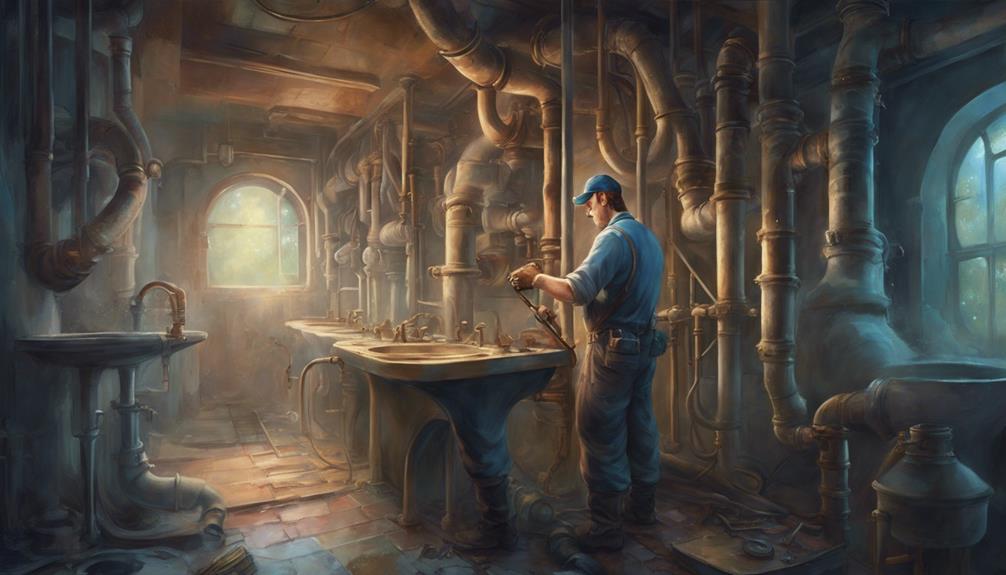
Regular plumbing inspections are essential for maintaining the functionality of your plumbing system and preventing major damages and issues. Investing in routine inspections can save you significant costs by preventing potential leaks and costly repairs. Here are three key ways plumbing inspections help you save money and avoid disasters:
- Early Leak Detection: Inspections can identify hidden leaks that, if left undetected, could cause water damage and result in expensive repairs.
- Preventative Maintenance: Regular inspections allow for the early identification of worn-out parts or potential issues, enabling you to address them before they escalate into major emergencies.
- Optimizing Efficiency: Inspections help ensure that your plumbing system operates efficiently, reducing water wastage and high utility bills associated with leaks or inefficient fixtures.
Frequently Asked Questions
Are Plumbing Inspections Required by Law for Homeowners?
As a homeowner, you must know your responsibility regarding plumbing inspections. Legal requirements vary, but regular inspections are often necessary. Ensure experts conduct these inspections to meet qualification standards and maintain your plumbing system's integrity.
How Often Should Plumbing Inspections Be Conducted?
Regularly remember, routine plumbing inspections are crucial. Typically, inspections should occur annually to catch issues early. Maintain good practices like checking for leaks, monitoring water pressure, and ensuring proper drainage to prevent problems.
What Qualifications Should a Plumber Have to Conduct a Thorough Inspection?
To conduct a thorough plumbing inspection, a plumber should meet training requirements and certification standards. Look for a professional with a diverse skill set and significant experience. These qualifications ensure a comprehensive assessment of your plumbing system.
Can Plumbing Inspections Uncover Hidden Issues That Are Not Visible to the Homeowner?
Yes, plumbing inspections can uncover hidden issues not visible to you. Leak detection reveals potential water damage. Pipe corrosion assessment prevents future problems. Water pressure checks ensure optimal performance. Drainage inspection pinpoints blockages early, preventing costly repairs.
Are There Any Specific Areas of a Home That Are More Prone to Plumbing Issues and Should Be Inspected More Frequently?
In your home, specific areas like kitchen plumbing and bathroom plumbing are prone to issues. Regular inspections of basement leaks and outdoor pipes are crucial to prevent costly damages. Stay proactive to maintain your plumbing system's integrity.
Conclusion
In conclusion, plumbing inspections are crucial for maintaining the functionality and safety of your home. Just like a regular check-up at the doctor can catch potential health issues early, regular assessments of your plumbing system can prevent costly repairs and ensure everything is running smoothly.
By investing in routine inspections, you can protect your home, save money in the long run, and avoid unexpected plumbing emergencies. Remember, prevention is key to a healthy plumbing system.